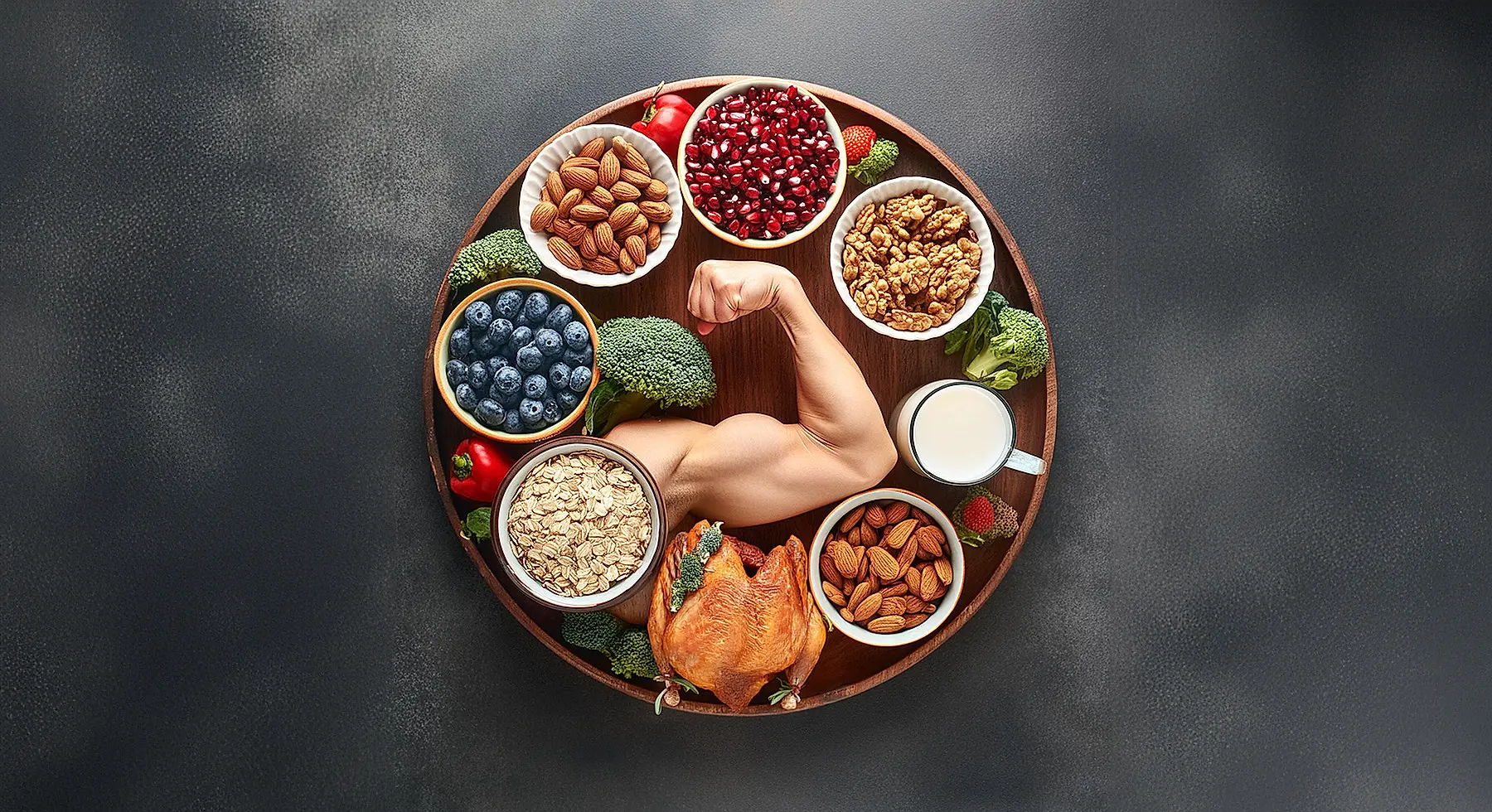Top Tips to Optimize Your Diet for Gains
Introduction
Achieving muscle gains requires a strategic combination of strength training and proper nutrition. While workouts stimulate muscle growth, your diet plays a crucial role in fueling your body, aiding recovery, and maximizing performance. Whether you aim to build muscle, enhance endurance, or maintain overall fitness, optimizing your diet is essential for long-term success. This guide provides the top dietary strategies to help you achieve maximum gains and sustain muscle development effectively.
1. Prioritize Protein Intake
Protein is the building block of muscle tissue. Consuming adequate protein ensures muscle repair, growth, and recovery.
How to Optimize Protein Intake:
- Aim for 1.2 to 2.2 grams of protein per kilogram of body weight per day.
- Distribute protein intake across multiple meals to optimize muscle protein synthesis.
- Choose high-quality protein sources such as lean meats, fish, eggs, dairy, legumes, and plant-based alternatives.
- Consider protein shakes for convenience but prioritize whole foods.
2. Fuel Your Workouts with Carbohydrates
Carbohydrates provide the primary energy source for workouts and help prevent muscle fatigue.
How to Optimize Carb Intake:
- Include complex carbs (e.g., whole grains, sweet potatoes, quinoa) for sustained energy.
- Consume fast-digesting carbs (e.g., bananas, white rice) post-workout to replenish glycogen stores.
- Balance carb intake based on workout intensity—higher for intense training days, lower for rest days.
3. Don’t Neglect Healthy Fats
Healthy fats support hormone production, joint health, and overall recovery.
How to Optimize Fat Intake:
- Focus on sources like avocados, nuts, seeds, olive oil, and fatty fish.
- Avoid trans fats and overly processed foods.
- Consume around 20-35% of daily calories from healthy fats to maintain optimal performance.
4. Stay Hydrated for Optimal Performance
Dehydration leads to reduced strength, endurance, and recovery. Proper hydration keeps muscles functioning efficiently.
Hydration Tips:
- Drink 2-3 liters of water daily, more on training days.
- Replenish electrolytes (sodium, potassium, magnesium) after intense workouts.
- Monitor urine color—it should be light yellow.
5. Eat Nutrient-Dense Foods
Consuming whole, nutrient-rich foods provides essential vitamins and minerals for muscle growth and recovery.
Key Nutrient-Dense Foods:
- Leafy greens (spinach, kale) for iron and magnesium
- Berries for antioxidants to reduce muscle inflammation
- Nuts and seeds for healthy fats and micronutrients
- Whole grains for sustained energy
6. Focus on Pre- and Post-Workout Nutrition
Pre- and post-workout meals enhance performance and muscle recovery.
Best Pre-Workout Meals:
- Oatmeal with peanut butter and banana
- Chicken and quinoa
- Greek yogurt with fruit
Best Post-Workout Meals:
- Protein shake with oats and honey
- Grilled salmon with sweet potatoes
- Scrambled eggs with whole-grain toast
7. Get Enough Calories to Support Growth
Muscle building requires a caloric surplus—consuming more calories than you burn.
How to Optimize Caloric Intake:
- Track daily calorie intake and adjust based on progress.
- Eat more frequent meals if struggling to gain weight.
- Focus on high-calorie, nutrient-dense foods like nuts, avocados, and whole grains.
8. Avoid Processed Foods and Excessive Sugar
Processed foods and excess sugar lead to energy crashes, inflammation, and poor muscle recovery.
What to Avoid:
- Sugary snacks and sodas
- Highly processed fast food
- Excessive alcohol consumption
Frequently Asked Questions (FAQs)
1. How much protein should I eat daily for muscle gain?
You should consume 1.2 to 2.2 grams of protein per kilogram of body weight to support muscle growth. Adjust intake based on workout intensity and body composition goals.
2. What are the best sources of protein for muscle building?
High-quality protein sources include lean meats, fish, eggs, dairy, legumes, quinoa, tofu, and protein powders.
3. Should I eat before or after my workout?
Both are important. Pre-workout meals provide energy, while post-workout meals help with recovery and muscle growth. Include a mix of protein and carbs in both meals.
4. Can I build muscle on a plant-based diet?
Yes! Consume plant-based protein sources like lentils, chickpeas, tofu, quinoa, nuts, and seeds. Combine protein sources to ensure you get all essential amino acids.
5. How many meals should I eat per day to gain muscle?
Aim for 4-6 balanced meals per day to maintain a steady supply of nutrients and avoid muscle breakdown.
6. Do I need supplements for muscle growth?
Supplements are not necessary but can be helpful. Whey protein, creatine, and BCAAs can aid muscle recovery, but whole foods should always be the priority.
7. What is the best way to track my progress?
Track progress through body measurements, strength gains, and overall energy levels. Use apps, journals, or fitness trackers to monitor calorie intake and macros.
8. How important is hydration for muscle growth?
Hydration is crucial for muscle function, endurance, and recovery. Drink at least 2-3 liters of water daily and increase intake after intense workouts.
9. What foods should I avoid when trying to gain muscle?
Avoid processed foods, excessive sugar, alcohol, and fried foods, as they can cause inflammation and slow muscle recovery.
10. How long does it take to see noticeable muscle gains?
Results vary, but with consistent training and proper nutrition, you can start noticing muscle gains in 6-12 weeks.
Conclusion
Optimizing your diet for muscle gains involves eating the right balance of protein, carbs, and fats, staying hydrated, and consuming nutrient-dense foods. By following these dietary strategies and maintaining consistency, you’ll build muscle efficiently and improve overall fitness. Whether you’re a beginner or an experienced lifter, making smart nutrition choices will maximize your gains and enhance your performance.





Leave a Reply